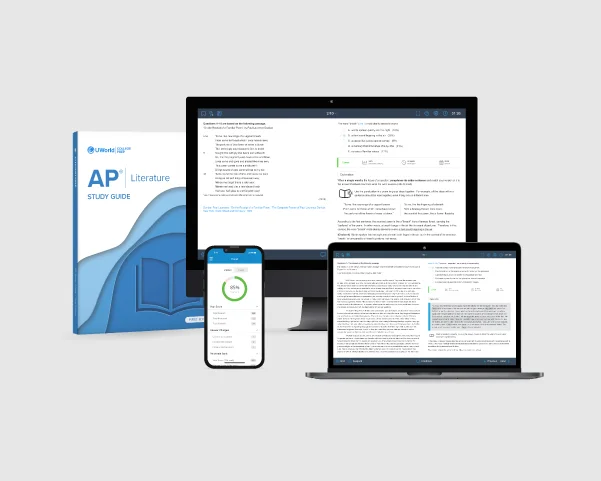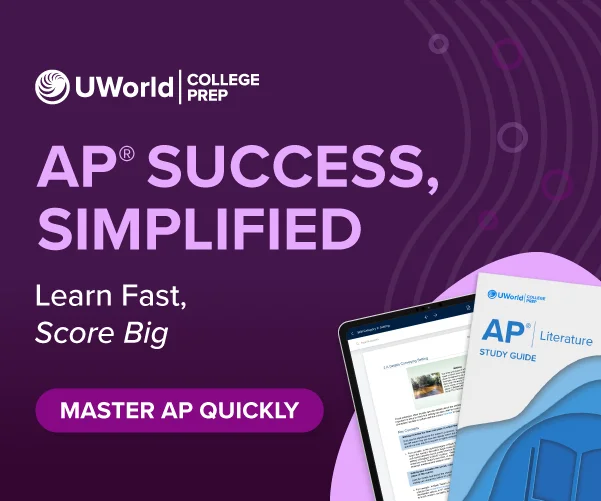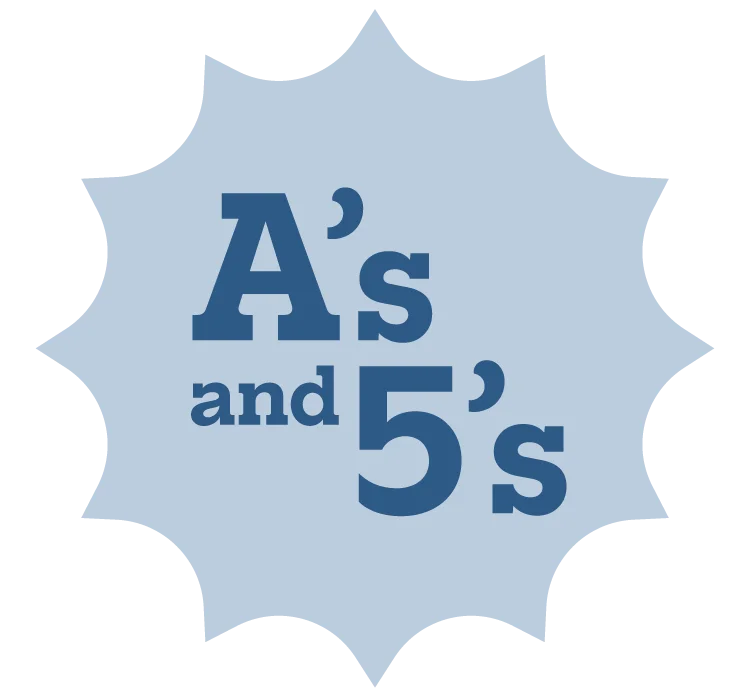Self-studying AP English Literature can be challenging, but with UWorld's resources and a structured approach, you can master literary analysis and ace the exam. This guide will show you how to effectively use UWorld's study materials to build a strong foundation, develop critical thinking skills, and prepare for the AP exam.
Step 1: Start with UWorld’s AP English Literature Study Guide to Build a Foundation
A solid understanding of the basics is essential to succeed in AP English Literature. UWorld’s study guide is an ideal starting point, offering a comprehensive yet approachable introduction to the subject.
-
Visual Aids and Up-to-Date Content for Engaging Learning:
Literature study can be dense, involving themes, symbolism, and figurative language. UWorld’s guide includes visual aids, summaries, and examples that make these complex concepts easier to grasp. The guide aligns with the current AP English Literature curriculum, ensuring you’re focusing on relevant content. -
Logical Organization for Clear Progression:
The study guide is organized to take you from foundational concepts, like understanding themes and tone, to more complex analysis, such as character motivation and figurative language. This layout allows you to build knowledge gradually, making each step in learning more manageable and less overwhelming. -
Seamless Integration in Digital and Physical Formats:
Available in both digital and physical versions, UWorld’s guide lets you study wherever it’s convenient. This dual format makes it easy to stay consistent in your study routine, whether you’re at home or on the go. -
Detailed but Approachable Information:
Designed to provide in-depth explanations without overwhelming detail, the guide lets you master each literary concept thoroughly. By understanding each section fully, you’ll build a foundation for more nuanced topics later in your study journey.
Step 2: Clarify Complex Topics with UWorld’s Video Explanations
After grasping the basics, you may find certain aspects of AP English Literature require more detailed exploration, such as the nuances of literary devices or the subtleties of tone and symbolism. UWorld’s video lessons are an excellent resource for these areas, offering focused, accessible explanations.
-
Concise, Topic-Specific Videos:
Each video focuses on a single concept or skill, keeping lessons bite-sized and digestible. This format allows you to concentrate on one area at a time and rewatch videos as needed, ensuring full comprehension of each topic. -
Visually Engaging and Relatable Content:
The videos use visual elements and examples to make abstract literary analysis concepts, like imagery or motif, more tangible. Seeing these ideas in action within a text helps demystify the analysis process, making them easier to grasp and apply in your own work. -
Guidance from Knowledgeable Instructors:
Each lesson is taught by an experienced instructor who breaks down complex topics into understandable parts. Their conversational teaching style makes the videos feel like a personalized tutoring session, offering insights that deepen your understanding.
Step 3: Test Your Knowledge with UWorld’s Practice Questions
Once you’ve built a solid foundation and tackled more challenging topics with video support, it’s time to test your skills with practice questions. UWorld’s AP English Literature practice questions are carefully designed to mimic the complexity and style of questions on the actual AP exam, providing valuable preparation.
-
Realistic, Exam-Level Practice Questions:
The practice questions reflect the rigor and format of the AP English Literature exam, covering question types from multiple-choice comprehension to analytical essays. This familiarity with exam-level questions allows you to build confidence and test your knowledge in real-world conditions. -
Detailed Explanations for Every Answer:
Each question includes a comprehensive answer explanation, highlighting why the correct choice is right and why other options are incorrect. This detailed feedback helps you identify gaps in your understanding and refine your analytical skills. -
Review and Track Progress for Continuous Improvement:
Regular practice and reviewing your answers help pinpoint areas that need additional focus. By revisiting challenging topics in the study guide or rewatching specific videos, you can address any weaknesses and build a strong command over each literary concept.
Step 4: Reinforce Your Learning with Custom Notes and Flashcards
To retain what you’ve learned, consistent review is essential. Creating personalized notes and flashcards provides a quick-reference study tool, helping you reinforce and review key concepts without needing to go back through all the materials.
-
Create Digital Flashcards for Key Literary Terms and Concepts:
Digital flashcards, using tools like Anki, Quizlet, or UWorld’s flashcard feature, allow you to create cards for important literary terms, rhetorical devices, and examples. Regularly reviewing these flashcards helps ensure quick recall of essential information on test day. -
Summarize Each Topic in Your Own Words:
After studying each chapter or section, write summaries in your own language. This not only reinforces what you’ve learned but also gives you a valuable set of notes to review before the exam. Organize your notes by topic, focusing on any areas you found challenging. -
Review Consistently for Stronger Retention:
Building a regular review routine—spending a few minutes each day or week on notes and flashcards—helps keep essential information fresh in your memory. This practice makes it easier to recall details quickly and confidently during the exam.
Tips for Staying Motivated and Accountable When Self-Studying
Independent study requires a unique combination of motivation and self-discipline, especially without a classroom structure or teacher’s guidance. Here are some strategies to stay on track during your self-study journey for AP English Literature:
-
Set Realistic Study Goals and Track Your Progress:
Break down your study plan into manageable steps, such as completing one chapter per week or answering a set number of practice questions. Achieving small goals creates a sense of accomplishment, which can keep you motivated. -
Use a Planner to Organize Your Studies:
A digital or physical planner helps keep track of what you’ve covered, showing your progress visually. Record topics you’ve completed, practice question scores, and areas needing further review to ensure you stay organized and focused. -
Reward Yourself for Milestones:
Self-study can be challenging, so celebrate your progress with small rewards. Treat yourself to something enjoyable after reaching a major goal or completing a difficult topic, creating positive reinforcement for your hard work. -
Join Online Communities for AP English Literature:
Studying on your own doesn’t mean you have to do it alone. Online forums and study groups for AP English Literature provide support, answer questions, and give you a sense of community, helping you stay engaged and motivated.
Conclusion
Self-studying AP English Literature can be both challenging and rewarding, and with UWorld’s resources and a structured approach, you can develop the skills needed to excel. Begin by building a strong foundation with the study guide, explore complex concepts through video explanations, and test your knowledge with realistic practice questions. Reinforce what you’ve learned with personalized flashcards and notes, creating a reliable study routine that promotes long-term retention.
While self-study requires commitment, the right tools and a disciplined approach make it possible to master AP English Literature independently. With each step, you’ll build confidence, deepen your understanding, and develop the critical thinking skills necessary for success on the AP exam. Embrace this self-study journey, and you’ll find that with consistency and perseverance, success is well within reach.





